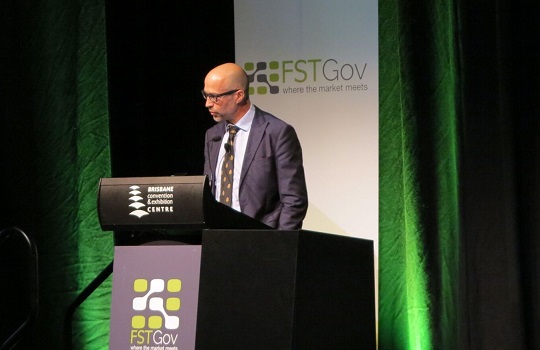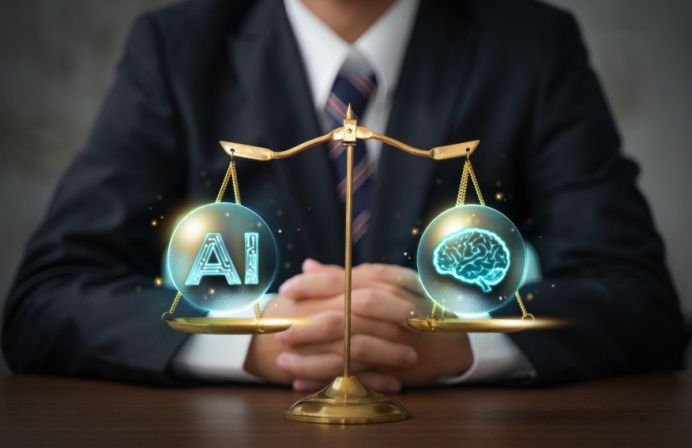
Blockchain could prove the most important technological innovation in a generation, surpassing the social and economic impact of the internet, according to Jason Potts, professor of economics, finance and marketing at Melbourne’s RMIT University.
Speaking at the FST Government Queensland 2018 conference in Brisbane, Potts said the emergence of the distributed ledger technology (DLT) will not only supersede all existing ledger technologies, but also fundamentally reshape global economies, extending its influence well beyond the cryptocurrency sphere.
The emergence of blockchain could radically upend existing economic models, he argued, superseding functions that have long been served by traditional institutions of authority.
“Blockchain isn’t [only about] bitcoin or cryptocurrencies. It is a completely new foundation upon which economies will be built,” Potts said.
“Prior to 2009, when the blockchain was first invented, the entire economic world – everything that happened in an economy – took place somewhere in a government, an organisation or a market, or some combination of all three. That was the entire universe of economic coordination.
“Since then we’ve had a fourth possibility – things can also take place in blockchain.”
For Potts, the blockchain tide is inevitable and irreversible. With billions, and potentially trillions, being invested by Silicon Valley heavies to develop DLT infrastructure, he urged Australian governments to jump on the blockchain wave now or risk being cast out into potential irrelevancy.
“Many of the functions that have historically been provided by governments and corporations are now able to be provided by blockchain,” he said. “This is new economic infrastructure being built; the sooner you start learning about this, or figuring out ways to make it work for you, the better.”
According to Potts, there is “enormous need” for government to not only properly regulate the technology, but also to allay public concerns around how it will be treated from a tax and legislative perspective.
Yet, mere regulation and oversight of the technology is not enough, he argued. Government should take active steps to develop DLT for its own ends, utilising the blockchain to improve public institutions that have failed to adequately serve their citizenry – from legacy healthcare data sharing networks and public data registries to security-compromised electronic voting systems.
“The implication is deep. It’s an opportunity to rebuild a lot of institutions that haven’t worked that well or that have become costly and overburdened,” he said.
“Governments, cities and nations around the world have a choice now about whether to embrace this and seek the benefits of it, or try to hold back this tide.”
Blockchain basics
Simply defined, blockchain is a type of digital records database, or ledger, used by individuals or organisations to record information on such things as ownership, value, contracts, money and assets.
Ledgers are widely recognised as the backbone of modern economies, vital to confirming the validity of a financial exchange. Anything from property rights and records of ownership to basic banking transactions and account balances are settled (and confirmed) through ledgers.
“When property changes hands, a ledger entry changes. That’s how we know [property] has shifted,” Potts said.
The basis of all successful ledger systems, and thus all financial transactions, is trust: trust between transacting parties, trust in institutions to mediate the trade (such as a bank or credit card company), and trust in political systems to regulate and legitimise the exchange.
Yet this complex web of trust comes at a cost.
“Trust is expensive. We have a lot of institutions, and a lot of economic resources, that are devoted to [maintaining trust],” Potts said.
The genius of blockchain lies in its ability to bypass these traditional ‘trust-bearing’ institutions, whilst upholding the public’s faith in the validity of a transaction.
While traditional ledgers were specifically designed to store information in a centralised, easy-to-access location, blockchain upends this system entirely. Distributed leger technology (DLT) – as its name suggests – splits and then allocates records, or ‘blocks’, across a shared peer-to-peer computer network. When information needs to be accessed, the blockchain (a type of DLT) reassembles these block ‘fragments’ to create consensus around underlying facts.
The system not only provides a failsafe for preserving data integrity, and thus supporting the perpetuity of information, but also offers a significant advancement in information security.
According to Potts, DLT will fundamentally transform how governments and organisations store, access, audit and validate information, as well as empowering with greater agency over their personal information.
“Blockchain’s taking us from a world of firms, markets and governments, to a world of contract, where we can write contracts directly onto the blockchain and execute them [immediately].”
“It essentially replaces a lot of government functions with a new architecture. The permissioning works very differently [from traditional ledgers] – citizens give permission them rather than agents.”
The technology is expected to usher in the wholesale digitisation of data registries administered by government, from personal identity records, land and property titles, tax, trade and securities transactions, and even voting.
However, one of the big winners from DLT wave will be the health sector. According to Potts, blockchain will not only support the industry’s new data sharing regime but also provide a backbone for data-hungry internet of things (IoT) and artificial intelligence (AI) technologies.
“At the moment we have a hospital- or doctor-centred ownership model of health data, but there is increasing pressure to create a patient-centred model of health data.”
“What’s exciting about blockchain is that it creates ‘data markets’. Data markets can then feed AI (artificial intelligence) health diagnostic tools and other things that we can build on top of this new economic infrastructure.
According to Potts, this blockchain-backed health records system will create completely “new markets and business models in the health sector.”





